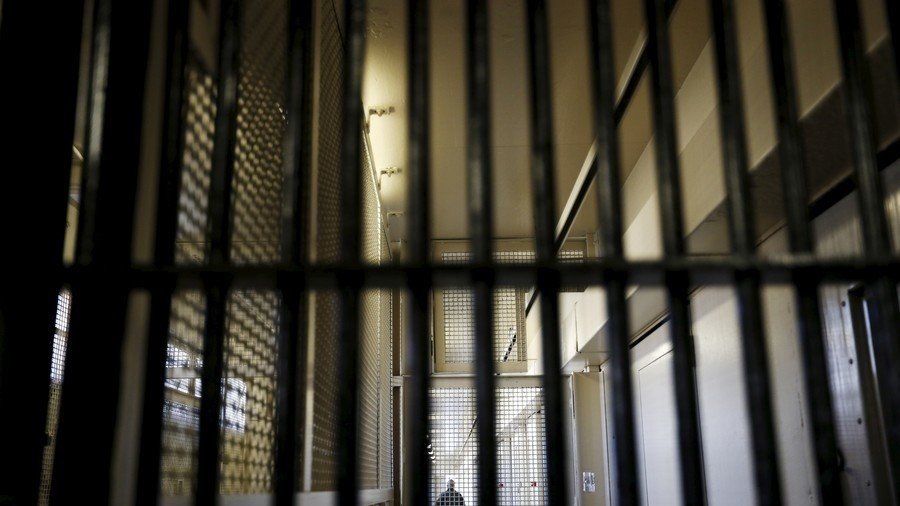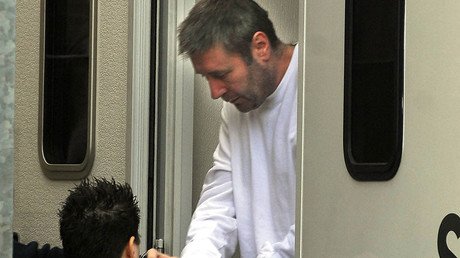The law that’s freeing UK’s 'worst rapist,' while other petty criminals face indefinite terms

Many are asking why the UK's ‘worst sex offender’ - a cabbie believed to have assaulted 100 women - will be freed from jail while thousands of others on indeterminate sentences for lesser crimes are still without a release date.
John Worboys, 60, a former stripper and porn actor, was convicted of 19 offences in 2009 and ordered to serve at least eight years in jail. He was given an indeterminate sentence for public protection (IPP), meaning he could be kept in prison for as long as he was deemed to be a danger to the public.
After a secretive hearing about his case in November, however, the Parole Board decided to approve his release, on condition that he report to probation staff every week and is barred from contacting any of his victims.
While Warboys was found guilty of assaulting 12 women, police believe there were more than 100 victims. More came forward after the trial, but the Crown Prosecution Service (CPS) declined to bring any more charges. It is understood the CPS may have taken this decision because Worboys was on an indeterminate sentence.
Worboys is due to be released within weeks - roughly eight years and nine months after he was jailed. Including the year when he was on remand before trial, he will have been behind bars for less than a year for each of the attacks he was convicted of, and a month for each of the women he was suspected of attacking.
At last count, there were 3,162 people in prisons across England and Wales serving the controversial, and now-abolished, IPP sentences. Because of a law which prevents the disclosure of Parole Board proceedings, it is not known why Worboys’ release was approved while so many other IPP prisoners are denied parole.
“I recognise there is a lack transparency of Parole Board processes and I have recently set out options for change,” Professor Nick Hardwick, the Chair of the Parole Board, said in a statement. “We currently have a statutory duty under the Parole Board Rules that prevents disclosure of proceedings.”
Professor Nick Hardwick, Chair of the Parole Board said:“I recognise there is a lack transparency of Parole Board processes and I have recently set out options for change. We currently have a statutory duty under the Parole Board Rules that prevents disclosure of proceedings.
— The Parole Board (@Parole_Board) January 5, 2018
I've signed @stellacreasy's cross party letter to the Secretary of State for Justice to investigate the John Worboys parole decision. You can read it below. pic.twitter.com/lfH4ocw4Yt
— Chuka Umunna (@ChukaUmunna) January 5, 2018
The Parole Board has made it one of its key aims to bring down the number of people on indeterminate sentences to 1,500 by 2020. In 2016-2017, 46 percent of all IPP offenders considered for parole were successful, but the recall rate is extremely high.
Sarah Ludford, a Liberal Democrats spokesperson, questioned whether Worboys’ release would raise questions about other IPP prisoners. “Worboys is being released after an indeterminate sentence (IPP) with min eight years. Has the injustice of 3,300 IPP prisoners with no release date - many far less dangerous - that Parole Board Chief Nick Hardwick highlighted last year been solved then?,” she tweeted.
Worboys is being released after an indeterminate sentence (IPP) with min 8 years. Has the injustice of 3,300 IPP prisoners with no release date - many far less dangerous - that Parole Board Chief Nick Hardwick highlighted last year been solved then? https://t.co/Lx8vUzCPnN
— Sarah Ludford #FBPE (@SarahLudford) January 4, 2018
British Labour peer Charlie Falconer added: “Worboys is an IPP prisoner. He had a tariff of 8 years. There were about 500 IPP prisoners, as at June 17, with tariffs of less than 2 years, about half of who had served 8 years or more over their tariff. How has he been released, and they not?”
A former IPP prisoner, Jamie, said Worboys is being released despite being “a true danger to society.” He added on Twitter: “The Worboys case is all about having the money to pay for a top legal team to guide him thru the hoops. Myself and 7500 out the 8000 given an IPP didn't have that and were left to rot.”
This country's most prolific rapists John Warboys is being released after serving 9 years 100 possible rapes I served 12 yrs gobsmacked he's a TRUE danger to women and society
— Jamie ex ipp (@topseyturnerjnr) January 5, 2018
Cleansheet, an organization that supports men and women into employment after they leave prison, called the decision to release Worboys and not other IPP prisoners a “disgrace.”
This is a disgrace. With hundreds of IPP prisoners still being denied justice https://t.co/ZXAkj6PzYw
— Clean Sheet (@CleanSheet_UK) January 5, 2018
IPP sentences were introduced in 2005 under Labour Home Secretary David Blunkett. They were designed to protect society from dangerous, violent, and sexual offenders whose crimes were not deemed serious enough to warrant a life sentence but who posed a “significant risk.”
The sentence was applied far more widely than envisaged, however, swelling the prison population to unprecedented levels and putting huge pressure on the already stretched parole board. Rather than targeting dangerous criminals – with an expected rise in the prison population of 900 – and IPP sentence was handed down to 8,711 offenders between 2005 and 2012. They included arsonists, pub brawlers, and street muggers.
In 2012, IPP was abolished under the Coalition government after a European Court ruling claimed it was “arbitrary and unlawful.” Its abolition was not retrospective, however, meaning there are still more than 3,000 prisoners – or nearly five percent of the prison population – serving sentences without a release date. The scheme costs British taxpayers approximately £131 million every year.
There are some prisoners who are serving four times their sentence. Last year, RT reported the cases of Ian Hartley, who is twelve years into a three-year jail term for robbery, and Joshua McCrae, who is eleven years into a four-year jail term for ‘wounding.’















